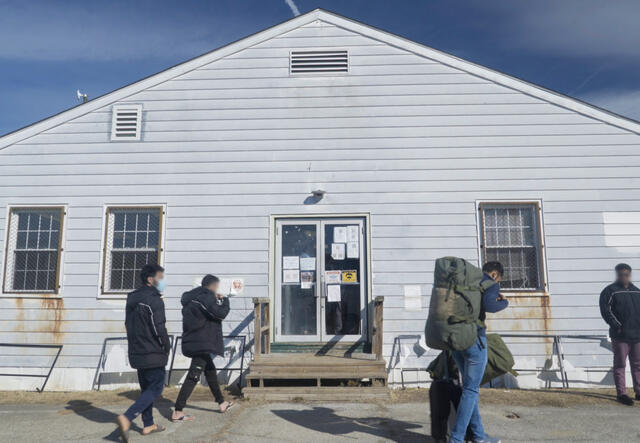
After the shift in power in Afghanistan, the United States welcomed over 76,000 Afghans forced to flee their country. This evacuation was the largest of its kind since the Vietnam War. It included Afghans who supported the U.S. mission in Afghanistan, human rights defenders, women in government, political activists or others at risk under the new government.
Even though the American people overwhelmingly supported welcoming them, some Afghans in the U.S. could lose their ability to work, find health care or reunite with family members. They could even lose their legal right to live in the country.

Congress can change this by passing the Afghan Adjustment Act, a bipartisan bill recently introduced in Congress that would provide a pathway to lawful permanent residence for Afghans rebuilding their lives in the U.S.
Find out more about this critical piece of legislation:
Why do we need an Afghan Adjustment Act?
In order to bring Afghans to safety as quickly as possible, the U.S. allowed them to enter the country under a process called “humanitarian parole.” That means they have temporary permission to stay in the U.S., not a path to legal permanent residence and eventual citizenship.
This is different from the refugee resettlement program. When refugees enter the country, they have a clear path to permanent residency and to becoming American citizens.

Navigating the complex asylum system
Afghans who were allowed to enter the U.S. under humanitarian parole must pursue other ways of attaining permanent immigration status, such as asylum. However, the process of seeking asylum is lengthy and complex, and exceedingly difficult to navigate without the assistance of a specialized lawyer. To complicate matters, many Afghans forced to flee their country were advised to destroy identification documents, professional certifications, and other information that could contribute to the evidence needed to support an asylum claim.
While the IRC has launched programs and is working with volunteer lawyers to help Afghans with asylum claims, the process is lengthy and highly resource-intensive. As of late July 2022, the Asylum Office had only received about 2,000 asylum applications—a small fraction of the over 76,000 evacuees brought to the U.S.—reflecting the strained capacity of the legal community to support these cases. Congress must ensure Afghans themselves are not punished for the emergency nature of the evacuation and limitations on the U.S. immigration system.

Living with uncertainty
Humanitarian parole lasts for two years. If Afghans have not yet found another path to temporary or permanent residency once it expires, they could lose access to employment, health care, and their legal right to reside in the U.S.
In addition, without permanent legal status, many Afghans separated from close family members have been unable to bring their loved ones to the U.S.

What will the Afghan Adjustment Act do?
The Afghan Adjustment Act would provide a pathway to lawful permanent residency for Afghan evacuees—the same legal footing they would have enjoyed had they been resettled to the U.S. as refugees.
Congress has taken similar action before, notably in the aftermath of the Cuban revolution, after America’s withdrawal from Vietnam, and following both U.S. military actions in Iraq.

The Afghan Adjustment Act would allow the U.S. to keep the promise of safety made to those it chose to welcome and provide them with the opportunity to stay in the country—for good, and after passing a range of security checks embedded in the process of seeking a green card. After a harrowing and life-threatening experience saving themselves and their families from violence, people should not be further traumatized by facing an uncertain future.
How the IRC helps
When over 76,000 Afghans arrived in the U.S., the IRC deployed over 400 staff and volunteers to support this endeavor. We help Afghans, Ukrainians, and other refugees as they arrive in their new communities, finding homes as well as temporary housing, and providing food, emergency cash and a “welcome basket” with basic essentials. We offer COVID-19 health orientation and help newcomers apply for benefits. We also provide adult and youth education, immigration legal assistance, and support to find housing, employment and health care.

How you can help
The IRC has 28 offices across the country, where we welcome Afghans, Ukrainians and other refugees as they rebuild their lives in the U.S. Here’s how you can support:
- Take action: Call your members of Congress today to tell them to support the Afghan Adjustment Act.
- Donate by signing up to make a monthly gift that will be used where it is needed most.
- Learn how you can support a local IRC office near you.
- Volunteer in a local office or remotely. Opportunities include preparing new homes for refugee families, mentoring someone as they restart their career and tutoring students.
- Become a community sponsor (if your group is eligible and the program is available in your area).
- Rent a home to a refugee (if you are a landlord, find out how).



